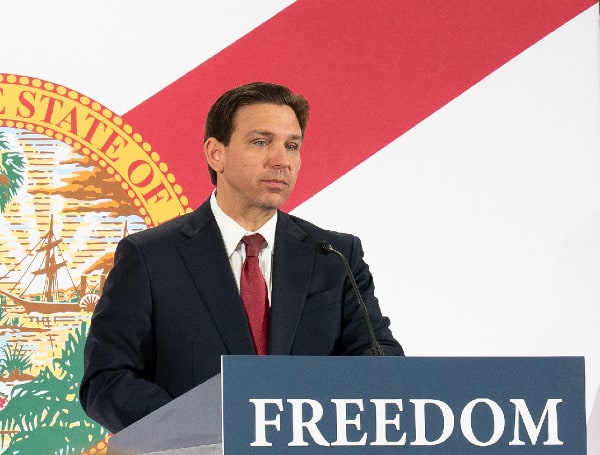In a move aimed at enhancing professional mobility and reducing barriers to licensure, Florida Governor Ron DeSantis signed into law Friday CS/SB 1600, also known as the “Mobile Opportunity by Interstate Licensure Endorsement (MOBILE) Act.”
This legislation streamlines the process for individuals holding active licenses in other states to obtain licensure in Florida, providing greater opportunities for skilled professionals to practice their craft across state borders.
Licensure by Endorsement
The centerpiece of CS/SB 1600 is the establishment of a streamlined licensure by endorsement process. Under this framework, the applicable regulatory boards or the Department of Business and Professional Regulation (DBPR) are required to issue licenses to qualified applicants who hold active, unencumbered licenses in other states.
Read: Florida Gov. DeSantis Appoints 3 To The ‘Institute For Freedom In The Americas’ Board Of Directors
This provision significantly reduces the administrative burden and time required for professionals to obtain licensure in Florida, making it easier for them to seamlessly transition their practice across state lines.
Reciprocity and Equivalency Assessments
The MOBILE Act also mandates that regulatory boards or the DBPR evaluate the licensing requirements of other states to determine substantial equivalency or sufficiency.
If the basis license in another jurisdiction is found to be substantially equivalent to or more stringent than the requirements in Florida, the application for licensure by endorsement must be approved, unless other grounds for denial exist.
Read: Gov. DeSantis Signs Bill Reshaping Florida’s Consumer Finance Loan Landscape
This provision ensures a fair and transparent assessment process, promoting greater reciprocity and mobility for licensed professionals.
Criminal History Checks and Fingerprinting
For professions that require fingerprints for criminal history checks, the MOBILE Act stipulates that applicants must submit their fingerprints before the regulatory board or DBPR can issue a license by endorsement.
The department or board is then responsible for reviewing the results of these checks to determine if the applicant meets the licensure requirements, with the costs of the fingerprint processing borne by the applicant.
Streamlined Timeframes and Reporting
The MOBILE Act also includes provisions aimed at improving the efficiency and transparency of the licensure process.
Read: Florida Gov. DeSantis Vetoes Controversial SB 280 Vacation Rental Bill
Regulatory boards or the DBPR are required to issue licenses to qualified applicants within 7 days of receiving all necessary documentation, and the department must submit an annual report to the Governor and Legislature detailing key metrics, such as the number of applications received, licenses issued, and disciplinary actions taken against MOBILE Act licensees.
By facilitating the seamless transfer of professional licenses across state borders, the MOBILE Act empowers skilled individuals to pursue career opportunities and expand their reach without being hindered by bureaucratic obstacles.
This increased mobility benefits both professionals and the broader economy, as it allows talent to be deployed more efficiently and effectively, according to the bill.
To implement the provisions of the MOBILE Act, regulatory boards and the DBPR are required to adopt rules within 6 months of the law’s effective date.
Read: Florida Governor DeSantis Vetoes Bill On Water Quality Monitoring And Closures
This includes establishing guidelines for legislative intent, application requirements, and the review of criminal history checks, among other key operational details.
During the rulemaking process, the MOBILE Act allows regulatory boards and the DBPR to continue processing applications for licensure by endorsement under the existing framework of the Florida Statutes (2023) for a specified timeframe. This transitional period ensures a smooth implementation and minimizes disruptions to the licensing process.
Help support the Tampa Free Press by making any small donation by clicking here.
Android Users, Click To Download The Tampa Free Press App And Never Miss A Story. Follow Us On Facebook and Twitter. Sign up for our free newsletter.

